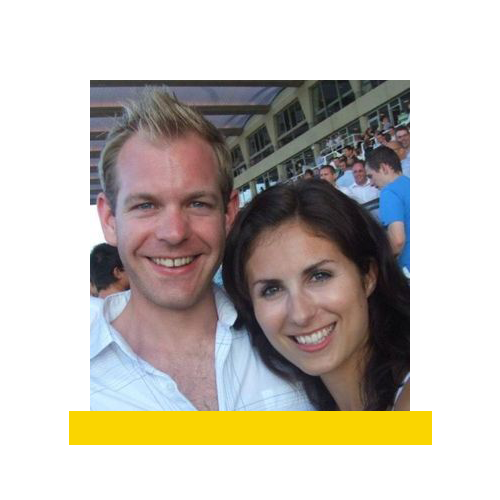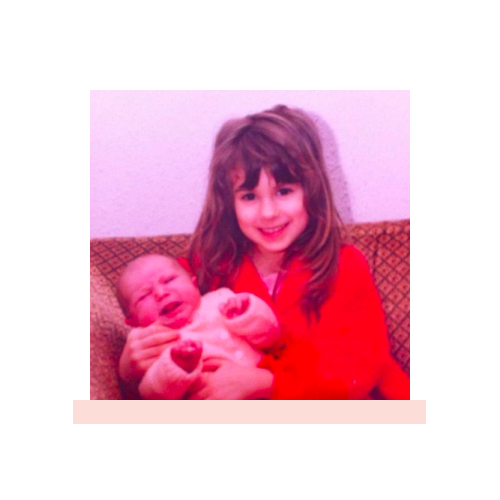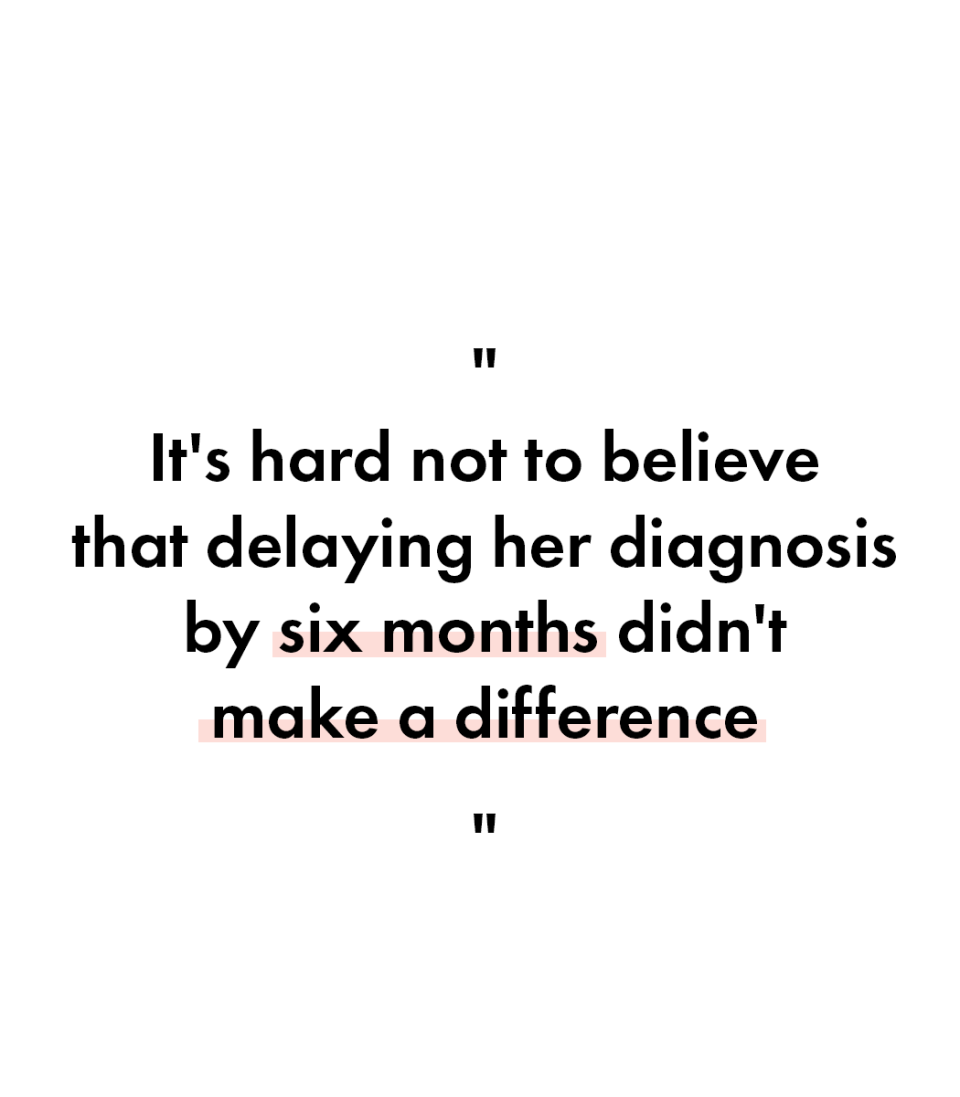"Doctors believed my sister's bleeding was 'normal'. Two years later she died of cervical cancer"

The glittering beaches of Bali seemed a distant memory when Sophie Hague returned home from her travels to notice the onset of some unusual symptoms. It was autumn of 2009, and Sophie, 22, tried to push any concerns about the abnormal bleeding and pain during sex she’d noticed to one side; she had taken the pill back-to-back while away to avoid having a period. It’s probably just something to do with that, she told herself.
Better to be safe than sorry, Sophie booked an appointment at the doctor. But seeing her GP, she was surprised when she was in and out so quickly. In place of any physical examination came the offer of a change of pill and a recommendation for an STI test – not something she felt was necessary. Having been in a faithful relationship with her partner Dave for years, Sophie was certain it wasn’t an STI to blame.
A private person, Sophie initially kept her symptoms to herself. She only eventually shared them with Dave when, after some months on her new pill, the pain and bleeding persisted and she began to worry. By now it was early 2010, and she returned to the doctor’s surgery, seeing a different GP this time. But again; she underwent no examination. Almost like history repeating itself, he offered her yet another change of pill and sent her on her way.

A third visit to a doctor, this time a locum, yielded no further exploration – nor any answers. But things would soon become scarily clear when, one afternoon in the spring of 2010, Sophie popped in to her Mum’s for lunch, and she passed out on the sofa. “Mum was worried, asking why she was so tired and didn't seem like herself,” Sophie’s sister, Emily, tells me years later. Sophie got upset and shared everything with her mum; how she felt she was being fobbed off and that no one was listening to her. She knew her own body and she knew something was wrong.
Using contacts at a nearby hospital (Sophie’s dad was a radiographer) the family managed to arrange an urgent scan. There, clear as day on the ultrasound, was a large mass on Sophie’s cervix. A subsequent MRI confirmed the findings, and she was sent for an urgent assessment in the gynaecology department. “By that point Sophie couldn't tolerate an internal check. It was just too painful,” recalls Emily. One examination under anaesthetic later, doctors confirmed the 5cm tumour covering her cervix was, as feared, cervical cancer.

Oncologists set about concocting a treatment plan for Sophie, which would be drastic and life-altering. She required a radical hysterectomy, which would see the complete removal of her uterus and cervix – along with her ability to have children naturally. “Sophie was so brave about it. It was a devastating blow, but because doctors had said there was a 95% success rate in defeating the cancer with this kind of treatment, she took the attitude: 'I've got to do what I've got to do',” says Emily.

The surgery was successful and Sophie recovered well from it, but the news afterwards was less positive. “We were told her 'margins weren't clear' which meant they didn't know if the cancer might still remain.” The edges around the tissue they removed weren't completely clear, so there was a risk that cancerous cells were still embedded in Sophie’s body. With little else to do but wait, Sophie set about enjoying her summer, trying to put the stress of the past few months behind her. But as Autumn rolled around, her symptoms reappeared.
The tumour had come back – even more aggressively this time – and Sophie needed chemo-radiotherapy in an attempt to stifle its growth. “As always, she dealt with it with a smile on her face,” remembers Emily. Even when she lost her hair – which was always Sophie’s ‘thing’ – she bravely shaved off what was left and embraced wearing a wig. “I was at university at the time, but I came home every weekend to see her and we'd spend time watching Sex And The City together. I'll always cherish those memories.”

In early 2011, after two cycles of treatment, Sophie discovered it had been unsuccessful. She was told there was nothing more doctors could do for her; they would continue chemotherapy - but it would only be to extend life, not to cure the cancer. She was only 24-years-old; not yet old enough to be eligible for a smear test.
Despite the devastating prognosis, Dave stood strong, remaining there for Sophie through it all. When Sophie moved back in to the family home so she could be looked after by her parents full-time, he visited whenever he wasn’t working, supporting her and keeping her company. In May 2011, on Sophie's 25th birthday, he proposed. “He made her so happy,” says Emily.

“I honestly didn't know Sophie's cancer was terminal until the day she died,” her sister admits. “It sounds odd, but I don't think it ever actually crossed my mind that she was going to die. I was so in denial about how seriously ill she was, the day Sophie died I had even arranged to go and see the new Twilight film with one of my friends. I literally had no idea.”
Sophie died on 19 November 2011, just less than a year and a half after her diagnosis. She passed away in her room at home surrounded by her mum, dad, brother, sister and Dave. “Her death left me devastated. It's a pain you should never have to watch your parents experience, and I feel robbed of the life we should have lived together,” shares Emily. “As we grew older, we had become friends and not just sisters. One of my best friends has a sister the same sort of age, and when I see them together it’s really hard. It's all the little things I know we’ll never have. Like her wedding day, or mine.”

The difficult thing for Sophie’s family is the questions they're left with over whether her death could have been preventable. If she had been examined at those initial appointments, perhaps her tumour could have been spotted and it might not have grown so big. "We're always told with cancer that the earlier you catch it, the better your chances are. It's hard not to believe that delaying her diagnosis by six months didn't make a difference," says Emily. The family ended up taking the case to court, where it was found that two of the GPs who failed to examine Sophie had been medically negligent. But the case fell down on causation, because it couldn't be proven that Sophie wouldn't have died if they had investigated properly during those initial appointments - in other words, the negligence had not caused her death.
Emily has gone on to become a midwife, and says what happened to Sophie stays with her in her daily work. “We're trained as midwives to always listen to a woman. It doesn't matter if the observations are normal, or if the baby monitoring is normal. If she's saying something is wrong, we listen to her. She knows her own body," Emily tells me. "But that's exactly what Sophie did, and somehow it wasn't enough to save her."

You Might Also Like


